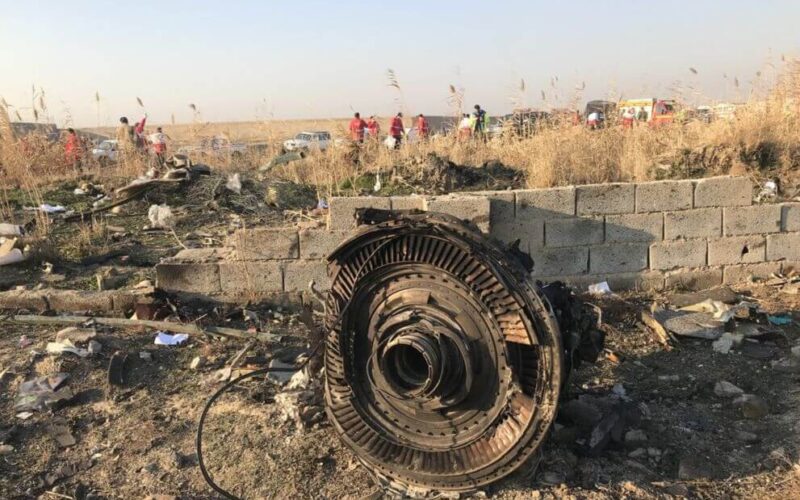The Iranian authorities do not intend to give Boeing and the U.S. authorities the flight recorders of the Ukraine International flight PS752 that crashed in Tehran, killing 176 people.
A Boeing 737 of a Ukrainian International Airlines crashed shortly after take off from Tehran International Airport, Iran, on the morning of January 8, 2020. The flight was bound for Kyiv, Ukraine. Onboard were 82 Iranians, 63 Canadians, 11 Ukrainians (including nine crew members), 10 Swedes, 4 Afghans, 3 Germans, and 3 British nationals, according to Vadym Prystaiko, Minister for Foreign Affairs of Ukraine. None of them survived.
The Ukrainian embassy to Iran initially said that preliminary information pointed to a technical problem with one of the two CFMI CFM56 engines. The authorities have since retracted that statement and warned against “speculations and unverified information” regarding the catastrophe.
The Boeing 737-800 was delivered to the airline directly from the factory in 2016 and had passed its last technical control two days before the crash.
The flight recorders have been recovered from the crash site by the search and rescue services and are now in the hands of the Iranian authorities. However, the latter announced they would not return them to Boeing, the manufacturer of the aircraft. “It is unclear at this point which country the black boxes will go to for the investigation,” Ali Abedzadeh, the head of the Iranian Civil Aviation Organization, said to the Mehr news agency. Canada, through its Minister of Transport Marc Garneau, offered “technical assistance to the upcoming investigation.”
Here’s the “black box” from the Ukrainian plane that crashed near Tehran earlier this morning. (Iranian state TV) pic.twitter.com/gYTLArU6LO
— BBC Monitoring (@BBCMonitoring) January 8, 2020
While nothing connects the two events, the decision of the authorities is likely motivated by tense diplomatic relations between Iran and the United States, culminating with the death of Qasem Soleimani, commander of the Iranian special services, in a drone strike.
Airstrikes fired by Iran over U.S. bases in Iraq in retaliation forced several airlines to adjust their flights. The Federal Aviation Administration suspended U.S. commercial flights over Iraq, Iran, the Persian Gulf, and the Gulf of Oman.

